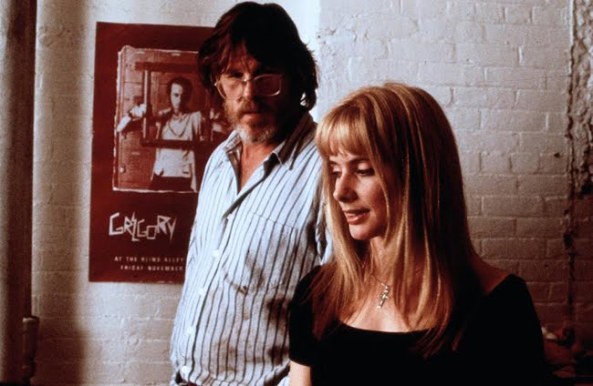 In Woody Allen’s “The Purple Rose of Cairo,” a movie character in a classic, Old Hollywood, Depression-era costume drama steps out of the screen and falls in love with a woman in the audience. He later pulls her onto screen and into the fold of the movie and shows her a night on the town. A montage of lights and marquees with the two actors walking and smiling in black and white plays, and it’s a perfect, yet unremarkable moment typical of just about any film made from that era.
In Woody Allen’s “The Purple Rose of Cairo,” a movie character in a classic, Old Hollywood, Depression-era costume drama steps out of the screen and falls in love with a woman in the audience. He later pulls her onto screen and into the fold of the movie and shows her a night on the town. A montage of lights and marquees with the two actors walking and smiling in black and white plays, and it’s a perfect, yet unremarkable moment typical of just about any film made from that era.
Step back though and you’ll remember this movie wasn’t made by some generic Hollywood director like Mervyn Le Roy or Leo McCarey, but was made by Woody Allen in 1985. Allen’s attention to detail in even just this simple montage is impeccable. And yet it’s all so light and frothy. Movies like “Crimes and Misdemeanors,” “Annie Hall” and “Manhattan” all have a special place in my heart, but some of my favorites of Allen’s are movies like “The Purple Rose of Cairo,” “Sleeper” and this film’s closest surrogate, “Midnight in Paris.” They’re effortlessly fun and seemingly insignificant romances and flights of fantasy, but they have surprising depth and insight about the world.
“I want what happened last week to happen this week. Otherwise, what’s life about?” That line could go almost unnoticed in the film. It takes place in a hilariously chaotic moment where the characters on screen are all taunting, showboating and arguing with the theater patrons watching them. One of the attendees says that line and it says so much about why we come to the movies, about how their predictability doesn’t just offer an escape but keeps us grounded. Continue reading “Rapid Response: The Purple Rose of Cairo”


